The views expressed in our content reflect individual perspectives and do not represent the official views of the Baha'i Faith.
The band Pink Floyd released Another Brick in the Wall (Part II) in 1979. The first line, “We don’t need no education,” took a long time for me to reconcile, because I hold education in high esteem.
But upon further examination, clearly the the full lyrics of that classic song cycle from the album The Wall – a rock opera, really – epitomize a broken educational system where discipline and intimidation have become paramount and learning secondary.
Who can disagree with the second line, “We don’t need no thought control?” Yet the uniform interpretation of “facts” taught in schools is hardly standard. The spin placed on historical facts is extreme in some authoritarian societies, for example, and it presents a very real danger to human cooperation and unity. If we can’t agree on the facts, how can we agree on the path to take or even the path we’re on as a culture or nation?
That’s one of the reasons why the Baha’i teachings call for universal compulsory education for both girls and boys, a universal auxiliary language and a universally-accepted system of weights and measures: to make sure that the world’s people, and especially their children, receive a comprehensive, factual education:
… education is essential, and all standards of training and teaching throughout the world of mankind should be brought into conformity and agreement; a universal curriculum should be established, and the basis of ethics be the same. – Abdu’l-Baha, The Promulgation of Universal Peace, p. 182.
Unfortunately, these universal principles have not yet taken hold in the world. Political leaders have tried to control the thoughts of their populace for decades, both to place themselves in only a positive light, and to instill fear of their removal. They would rather be feared than loved. Some are even willing to slaughter their own citizens to hold onto their power and authority, and to their ability to control the narrative when determining what the populace learns.
This means that educators have a tough job. In the United States, curriculums are set by the school district and the state, not the Federal government. A long list of national educational associations provide some standards for public and private schools at all levels which must be implemented to achieve accreditation – but the State and district school commissions or boards set the curriculum and control the content of textbooks. Hence disparities exist, sometimes large, among the 50 U.S. States. A recent New York Times investigative series found major differences between school textbooks in Texas and California, for example.
Now multiply that by 200 nations.
Educationally, then, we still live in the Wild West. When it comes to learning, what gives us a common understanding of our and other’s roots, our histories, mistakes, and achievements, our understanding of language, math, and the sciences, even the arts, can be haphazard at best.
But we are drawing closer. The internet and its easy access to data and information have ballooned our knowledge of ourselves and others. Third graders now take their tests on computers. Students learn to find information instead of memorizing it. Local, regional and world news is ubiquitous, and I can ask Siri or Alexa anything and rarely receive a blank response. We have been and are developing a world body of knowledge, transforming the thick tomes of the Encyclopedia Britannica of old into massive online repositories of knowledge like Wikipedia and the World Digital Library.
There will come a time when all the Earth’s peoples will not only be educated, but will have access to all the world’s information at their fingertips or with the sound of their voice. A hundred years ago, the Baha’i teachings noted this remarkable pace of progress:
Now, in this glorious age, which is the century of Baha’u’llah, consider how far knowledge and learning have progressed, how fully the mysteries of creation have been unveiled, and how many great undertakings have been embarked upon and are multiplying day by day! Soon will material knowledge and learning, as well as spiritual knowledge, make such progress and display such wonders as to dazzle every eye and to disclose the full meaning of the verse of Isaiah: “for the earth shall be full of the knowledge of the Lord”. – Abdu’l-Baha, Some Answered Questions, newly revised edition, p. 74.
We’ve experienced those wonders, and we’re living through them right now. Baha’is believe that this veritable explosion of knowledge, awareness and interconnection has emerged from the dynamic energies released by the the twin revelations of the Bab and Baha’u’llah:
He Who is both the Beginning and the End, He Who is both Stillness and Motion, is now manifest before your eyes. Behold how, in this Day, the Beginning is reflected in the End, how out of Stillness Motion hath been engendered. This motion hath been generated by the potent energies which the words of the Almighty have released throughout the entire creation. – Baha’u’llah, Gleanings from the Writings of Baha’u’llah, p. 168.
In his 1982 book Critical Path, the renowned futurist and inventor R. Buckminster Fuller estimated that up until 1900 human knowledge doubled approximately every century. But by 1945, Fuller’s research and calculations indicated that the sum total of human knowledge doubled every 25 years, and by 1982 it was doubling every 12-13 months. IBM now estimates that in 2020 human knowledge will double every 12 hours. As you can see, the pace of change has rapidly accelerated, and continues to increase exponentially. It will not slow down unless we do irreparable harm to ourselves or this planet first.
On May 24th, 1844, at about the same time the Bab announced his revelation to Mulla Husayn in Shiraz, Persia, the American inventor Samuel F.B. Morse sent this message between Washington D.C. and Baltimore by telegraph:
That message now symbolizes the dawn of a new age of human progress. Today, the world has become an interconnected network of peoples, nations and belief systems – just as the Bab and Baha’u’llah promised.
So when I hear Pink Floyd’s lyrics to Another Brick in the Wall, I think how much they rebel against old modes of learning – and how new modes are sweeping educational institutions around the globe.
The thought police have no place here. Increasingly, each one of us has the freedom to seek knowledge from whatever source it may appear, although wisdom is needed to determine fact from fiction, truth from untruth, reality from propaganda. What can guide us in those decisions – in determining truth from falsehood? What knowledge do we need to make this critical distinction?
In the words of Abdu’l-Baha, we can find that knowledge in the teachings of the prophets of God:
The knowledge of the reality of the Divinity is in no wise possible, but the knowledge of the Manifestations of God is the knowledge of God, for the bounties, splendours, and attributes of God are manifest in Them. Thus, whoso attains to the knowledge of the Manifestations of God attains to the knowledge of God, and whoso remains heedless of Them remains bereft of that knowledge. It is therefore clearly established that the Holy Manifestations are the focal centres of the heavenly bounties, signs, and perfections. Blessed are those who receive the light of divine bounties from those luminous Daysprings! – Abdu’l-Baha, Some Answered Questions, newly revised edition, p. 256.
This perennial knowledge will help guide us to all knowledge, to all truth, to all unity and goodness. This knowledge will protect us from imperfection and trouble, from turning to our own deficient understandings and misconceptions that cause disunity and hatred, injustice and hurtfulness. This knowledge truly offers us the best possible education.





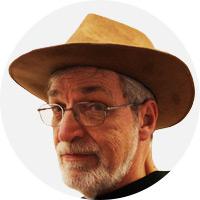



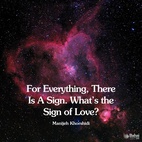
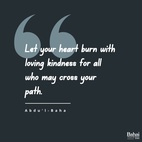

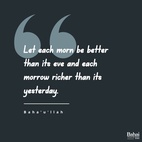
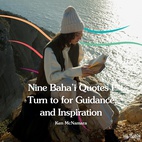
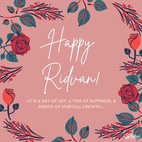
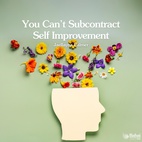
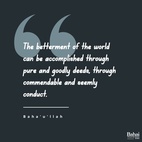

Comments
Sign in or create an account
Continue with Facebookor